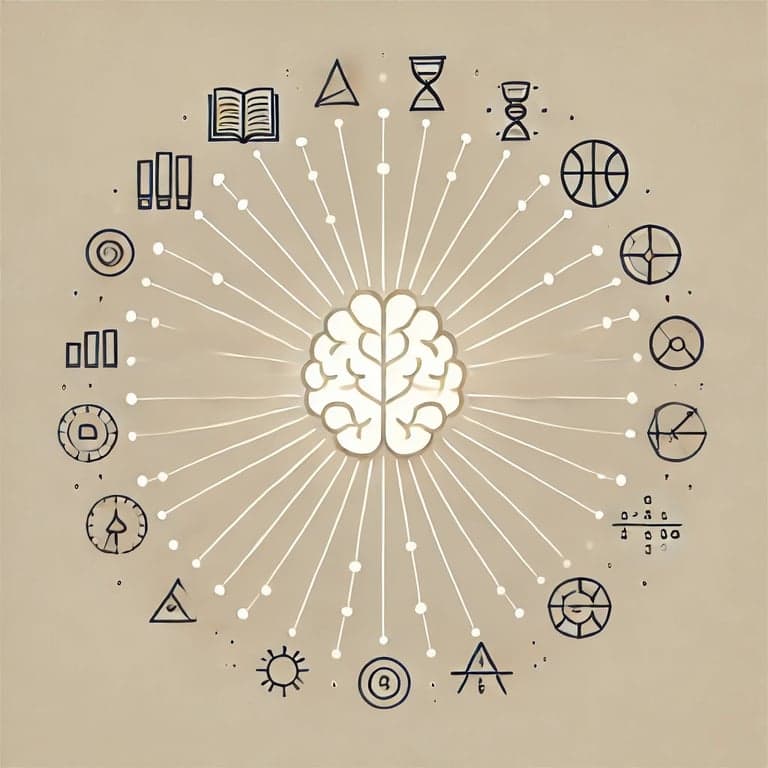
What Is Ultralearning?
Ultralearning is a strategy for learning hard skills both quickly and effectively. Think of it as a high-octane approach to mastering new topics—whether it’s a foreign language, computer programming, painting, public speaking, or any other domain in which you want to become proficient. Scott H. Young, the author, breaks it down into nine key principles that help you structure your learning journey to maximize speed, depth, and retention.
Why You’d Want to Ultralearn
We live in a fast-paced, ever-evolving world. By the time you finish reading this post, three new apps might have launched that promise to revolutionize everything you do. If you can master new skills quickly, you’re always a step ahead—professionally and personally.
Here are some benefits of Ultralearning:
Stay Relevant: Skills evolve. If you learn faster, you don’t get left behind.
Boost Confidence: Being good at something new feels amazing, and that motivation can spill over into other areas of life.
Save Time: Focused methods and deliberate practice cut down on wasted, “wandering” study sessions.
The Nine Principles (Meet Didi!)
A great way to remember the nine Ultralearning principles is the mnemonic:
My Friend Didi Drove Red Ferraris Round Italy & England
My → Metalearning
Friend → Focus
Didi → Directness
Drove → Drills
Red → Retrieval
Ferraris → Feedback
Round → Retention
Italy → Intuition
England → Experimentation
Imagine your charismatic pal “Didi” taking you on a whirlwind European road trip in flashy Ferraris—this silly mental image can help the list stick in your mind better than simply memorizing nine words.
1. Metalearning
Before diving into a new skill, plan your attack! What resources will you use? How does someone typically become proficient in this area? The “meta” part is all about strategy—analyzing the best roadmap to learn before you start driving.
2. Focus
In a world of smartphones, streaming TV, and endless distractions, staying focused can feel superhuman. But dedicating blocks of uninterrupted time to learn or practice is critical. With consistent focus sessions, you can accomplish more in less time (no Ferraris required).
3. Directness
Learning by doing is the name of the game. If you want to become a programmer, don’t just watch tutorials—write actual code. If you want to learn to cook, jump into the kitchen. Embrace real-world tasks that force you to apply the skill directly.
4. Drills
Target your weaknesses! Break down complex tasks into smaller subskills that you can practice intensively. Whether it’s guitar scales, language vocabulary, or design mockups, short, repetitive drills will sharpen your skills.
5. Retrieval
Don’t just passively reread notes. Actively retrieve information from your mind—through flashcards, practice quizzes, or teaching someone else. Retrieval cements learning in a way passive review can’t.
6. Feedback
Constructive feedback helps you refine your approach. It can come from mentors, peers, or technology (like an app that corrects your pronunciation). Embrace the critique—it’s how you improve.
7. Retention
All that new knowledge doesn’t do much good if you forget it two months later. Space out your reviews, revisit older material, and keep your skills sharp over time.
8. Intuition
Once you grasp the “big picture,” you can see patterns and solve problems more creatively. This principle is about deep, conceptual understanding—going beyond rote memorization to feeling at home in the subject matter.
9. Experimentation
Finally, keep pushing your limits by experimenting. Try new techniques, challenge yourself, and continue refining your learning process long after you’ve “got it down.” There’s always room to grow.
When Is Ultralearning Best?
Ultralearning can be incredibly powerful if:
You have a clear end goal: e.g., passing a certification exam or developing a crucial career skill.
You want to learn fast: Great for people with a pressing deadline or a burning desire to master something quickly.
You’re a self-starter: It can be intense, so self-motivation is key.
When It Might Not Be Ideal
Very vague goals: If you don’t know why you’re learning something, sticking to an intense program may be difficult.
Exhaustion or burnout: Ultralearning methods demand focus, consistency, and resilience. If life is already overwhelming, it may be wise to choose a lighter approach first.
Putting It All Together
Ultralearning gives you a framework to ramp up your skills at warp speed. By combining solid strategy (Metalearning) with unwavering focus, direct application, targeted drills, active retrieval, open feedback loops, solid retention practices, intuitive understanding, and ongoing experimentation, you can learn just about anything faster than you ever thought possible.
So the next time you want to level up—whether that’s speaking Spanish, mastering digital marketing, or picking up a brand-new hobby—remember: “My Friend Didi Drove Red Ferraris Round Italy & England!” Embrace the nine principles, buckle up, and start your own Ultralearning adventure.



